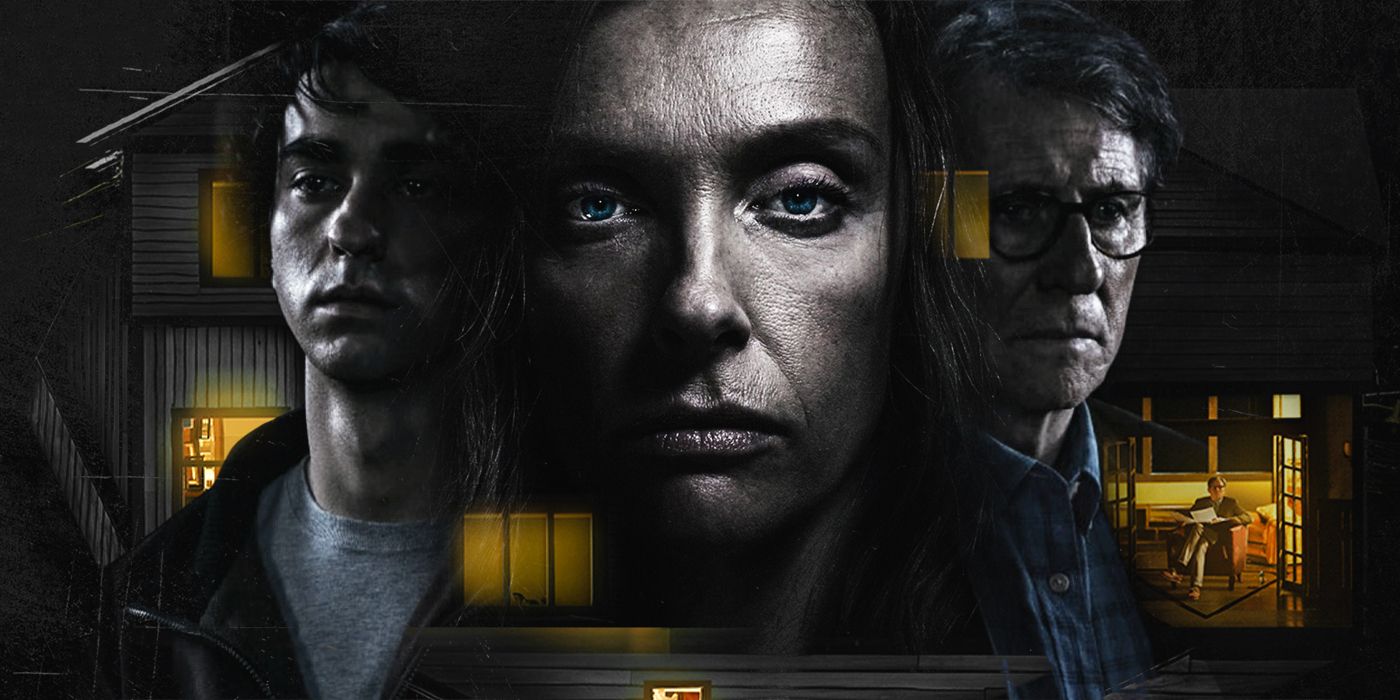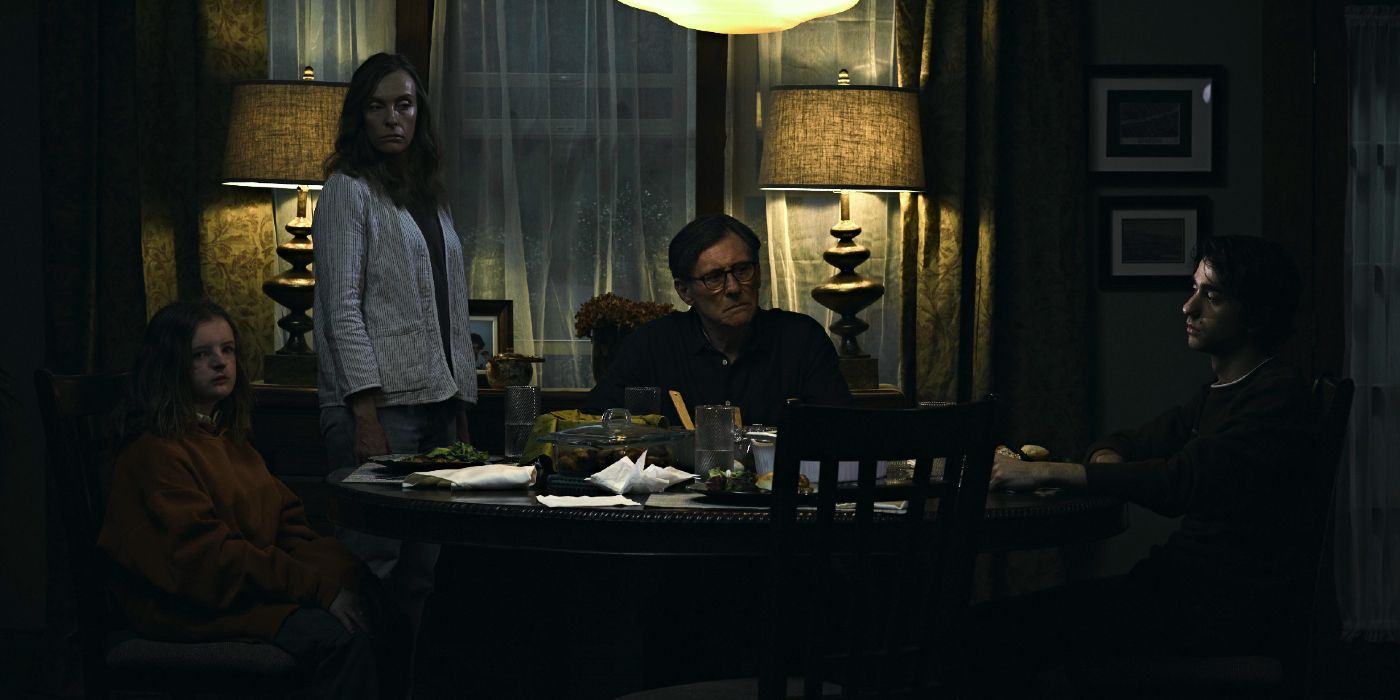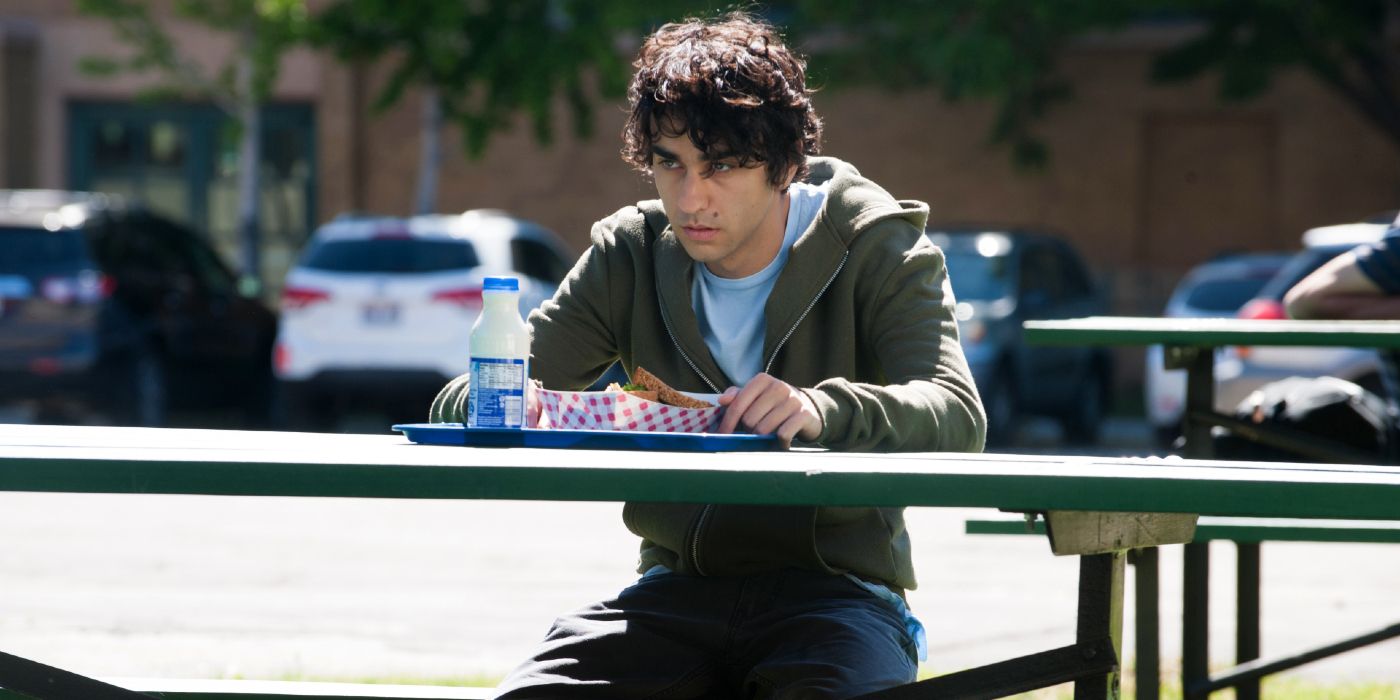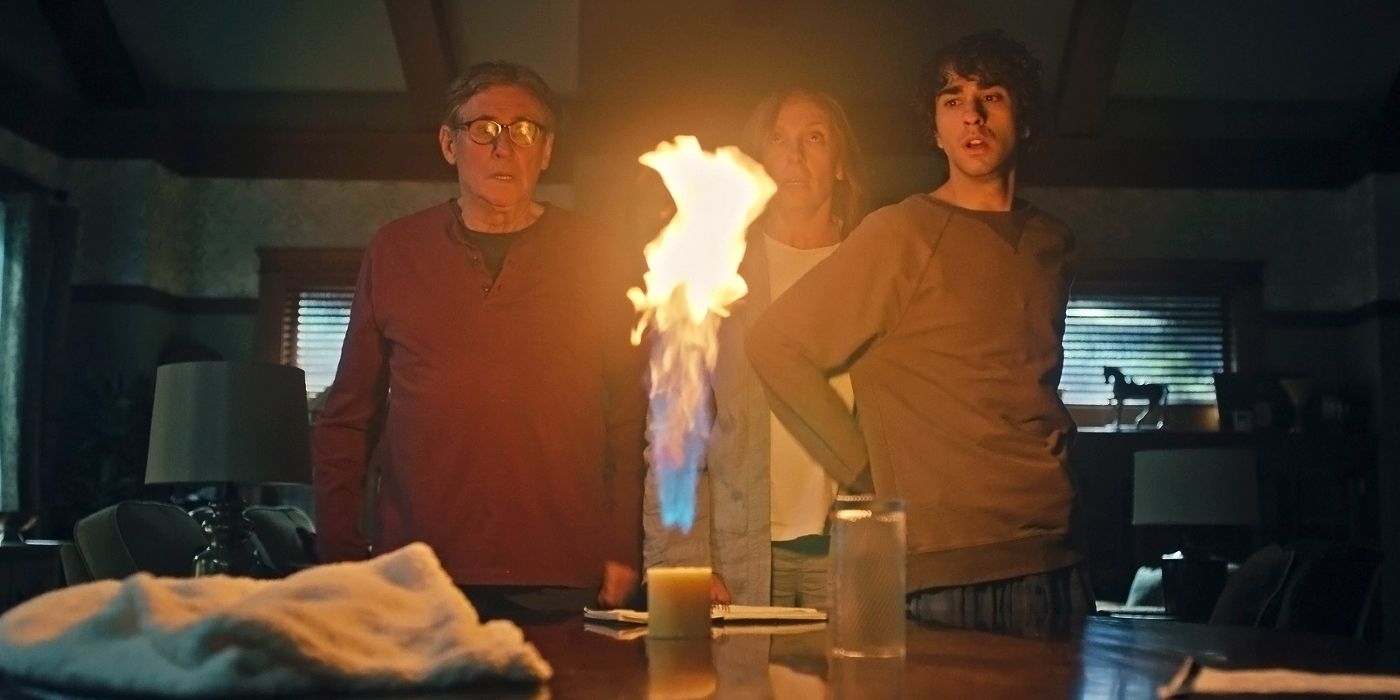Hereditary is a psychological ghost story about a family coming undone after a horrible tragedy. Annie (Toni Collette) loses her mentally ill and emotionally distant mother and experiences a complicated emotional struggle between minimal grief and overwhelming relief. Annie gradually becomes unhinged after she learns her dead mother was involved in a cult dedicated to reviving a demon called Paimon. The cult, in turn, is responsible for unleashing a targeted course of mayhem upon the family.
Death stalks them as Annie’s daughter Charlie (Millie Shapiro) is violently decapitated in a car accident. Annie's son Peter (Alex Wolff) was driving, attempting to rush Charlie to a hospital as she was having an intense allergic reaction. Annie’s husband Steve (Gabriel Byrne) does his best to keep the peace between his wife and his traumatized son. Peter and Annie continually tiptoe around each other, with tension, abandonment, and psychological torment consuming their lives, in addition to the cult of Paimon creeping around each family member.
Annie’s arc throughout the film illustrates her anxiety about her family history of inherited mental illness and trauma. Her narcissism and obsession with having the perfect home, perfect family, and a semblance of normality are all projected onto her children, especially Peter, which only intensifies after Charlie’s death.
Complex Post-Traumatic Stress Disorder
I’ve watched Hereditary several times, and each time I empathize with Peter’s trauma and Annie’s victimization with a better understanding. I have Complex Post Traumatic Stress Disorder (CPTSD). The distinctive C in my CPTSD means that in addition to flashbacks, avoidance, and a high sense of threat levels, I also re-experience chronic traumas.
I grew up with an emotionally unavailable caretaker, and like Peter, I lived with someone who spent my lifetime regretting their decision to take care of me. When things got bad, I was reminded how much better their life would be if I didn’t exist. I was made to believe that I was the cause of their unhappiness, and that I was the reason they couldn’t live their dreams. And they often tried to sabotage my own happiness.
And then, our family matriarch died. I found this family member dead when I was twelve years old, alongside my caretaker. Even though she wasn’t a part of a demon cult and was nowhere near as mentally ill as Annie’s mother, her death worsened the manipulation, the arguments, the lies, the gossiping, the physical fights, the constant threats, and the fake apologies that never included “I'm sorry.” And I got all of the blame.
As I watched Hereditary, I understood Peter’s confusion and disillusionment. Annie craved normalcy, while Peter desperately wanted to exist apart from his mother’s fantasy of a perfect family. Initially, after the death of her mother, Annie attends a grief support group where she describes a vague family history of mental health issues. It’s eventually revealed that her mother became overbearing and controlling when Annie was pregnant with Peter, and pressured her to have the baby rather than get an abortion, which is what Annie wanted. Annie still projects her regret onto Peter, which only amplifies in cruelty when Paimon’s spirit pushes Annie to sleepwalk and speak nightmarish thoughts to him. I’ve been in Peter’s shoes, being told by your adult caretaker that they regret your existence. It’s dehumanizing and corruptive in so many ways, and those words stay engraved in the brain for a lifetime, it seems.
Realistic Portrayal of Mental Illness
Writer-director Ari Aster does an exceptional job of realistically portraying mental illness manifesting and festering alongside extreme freak accidents as the demon feeds off of the devolving mania of the remaining members of the Graham family. The film becomes almost unbearable to watch as we follow each moment of raw terror and unimaginable grief that Annie and Peter throw at each other: Peter blames himself for his lack of awareness but also blames his mother for shoving her picturesque fantasy upon him and Charlie, going as far as to blame her for forcing him to take Charlie with him the night she was killed. I resonated most with these brutal moments between Annie and Peter. And I realized a few things.
Was it Love or a Sacrifice for Paimon?
Annie’s mother was emotionally negligent, and was meticulous in love bombing her grandchildren when in reality she was setting them up to be sacrifices for Paimon. Annie continues the hereditary corruption by refusing to be honest about her emotions after her mom’s death, and allows her regrets and untapped dreams to become fuel for her anger and resentment towards Peter. I’d seen this many times with my own caretaker. They wallowed in their misery because they were also abused, had their dreams taken away from them by their own caretaker, and constantly projected those dashed hopes onto me. They continued the toxic cycle of condescending conversations, gossiping when I did something wrong, taking credit when I worked hard in and outside of school, and shoving their vision of a perfect family on me when in reality there was much abuse in their own intimate relationship. Like Peter, I had to hear from another family member that it wasn’t my fault; they were the adult and I was the child. Their hurt was never my responsibility to fix.
Most notably, I recall the dinner scene where Annie snaps. Annie immediately deflects Peter’s concern when he asks her if she has anything she’d like to get off her chest. She then goes on to make herself the center of the family’s grief over Charlie and insisting she holds the most pain, disregarding the fact that Peter is also suffering. After minimizing his trauma from the accident, Annie finishes her attack by shouting “NOBODY TAKES RESPONSIBILITY FOR ANYTHING!” And Peter bursts her bubble with the question: “What about you, Mom? She didn’t want to go, why was she there?”
This conversation has likely occurred in too many homes to count. Peter’s body language, his silent tears, and his unsteady hands all express how his mother is breaking him down. Annie’s shift from fierce anger to false placidity is unsettling to witness but does occur - I’ve seen this change myself. I’ve grown so fearful in my body and mind from seeing my caretaker experience this emotional and mental switch that as an adult I understand how to identify triggers they use to purposefully try to jab at me. Understanding toxic patterns in my own family has significantly changed how I interact in my friendships and relationships, and how I view myself.
Annie’s resentment and mistreatment of Peter are the same circumstances I grew up with. And it’s a demoralizing feeling, but it can ultimately be a freeing one. As an adult, I learned through intensive therapy that you can’t make people change - only they can do that, and only if they are willing. In the film, Annie dives deeper into her own disillusionment as Paimon’s influence intensifies. Once she learns of her mother’s plan to give Charlie and Peter over to the cult, Annie becomes obsessed with making contact with Charlie’s ghost to try and end all the harm done to their family. In this race against both the cult and the malevolent workings of Paimon, Annie abandons her job, pays very little attention to her husband’s feelings about Charlie’s death, and completely disregards Peter’s guilt and trauma.
None of this was Peter’s fault. None of what was done to me was my fault either. Peter’s possession by the end of the film, surrounded by the corpses of Annie, Charlie, and his grandmother, symbolizes how unchecked abuse and trauma can destroy you and everyone around you.
'Hereditary' Explores Themes of Trauma and Abuse
Hereditary uses horror to explore its themes of trauma and abuse, and the complicated emotions and dynamics of a dysfunctional family unit. After several rewatches, I walk away knowing that nothing about my disorder and mental illnesses were ever easy to begin with. And while I know that we can’t choose the family we were born into, we can choose whether we will succumb to inherited cycles of mental illness and abuse, or if we will become generational curse breakers.




